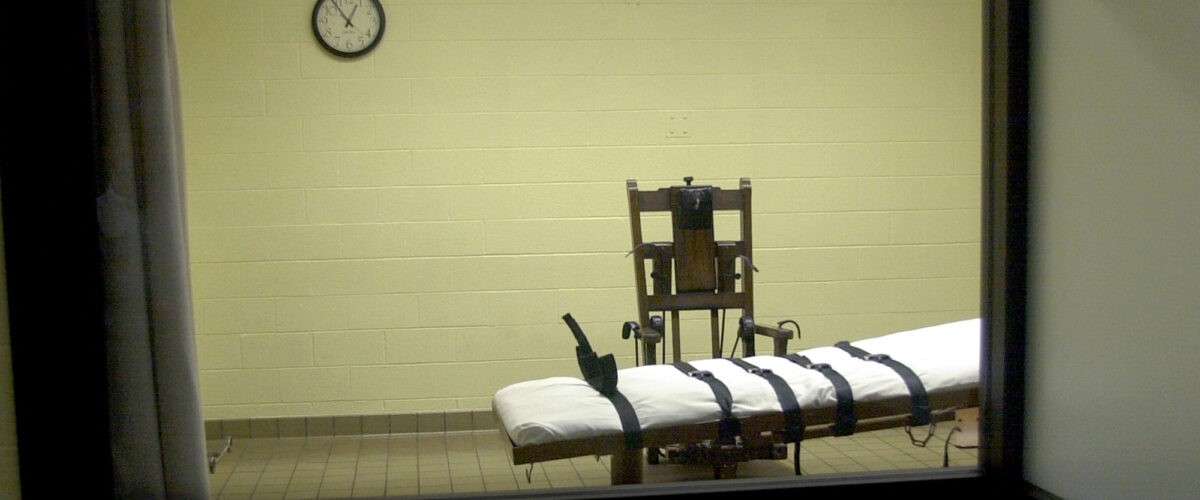The anti-death penalty movement in Ohio is gaining traction with conservative support and leadership amidst a national rise in Republican opposition to capital punishment.
Eight states currently have death penalty repeal bills sponsored by Republicans, according to Conservatives Concerned About the Death Penalty. While that number is down from 10 in 2021, it continues an overall trend the organization traces to the beginning of the 21st century.
“From 2000 to 2012, it was rare for Republican state lawmakers to sponsor death penalty repeal bills. In 2013 … the number of Republican sponsors more than doubled,” the organization reported in its study, “The Right Way.”
By 2017, “more than 10 times as many Republicans sponsored repeal than in 2000, with two-thirds of those sponsors governing in red states.”
Ohio is one of those states, with bills to end capital punishment currently working through both chambers of the legislature with support from fiscal and religious conservatives both inside and outside government.

Steve Huffman
“Human life is precious, and it is not the role of the government to end the life of its citizens,” Ohio Republican Sen. Steve Huffman, co-sponsor of Senate Bill 103, posted on Facebook March 9.
Republican Rep. Jean Schmidt, who introduced and co-sponsors House Bill 183, is a self-described Trump supporter who once strongly favored the death penalty.
“Over the course of my life, I have reevaluated this issue. When I last served in this chamber 16 years ago, I was an advocate for continuing the death penalty. A decade and half later, I truly feel the time has come to end the death penalty in Ohio. I’m looking forward to discussing this important issue with my colleagues and constituents,” she said in 2021 when the bill was introduced.
The shift occurred as she considered the financial and emotional costs of executions and came to see the unfair way capital punishment is administered.

Jean Schmidt
“Apart from moral, ethical and spiritual reasons to oppose capital punishment, the carrying out of executions raises significant concerns on who is sentenced to death and how that sentence is carried out,” she said. “It is long past time Ohio joins the global community in ending the death penalty.”
Schmidt recently hosted Chris Finney, an attorney and anti-tax advocate, and Laura Strietmann, a leading anti-abortion activist in Ohio, to speak in support of the bill to the Ohio House Criminal Justice Committee.
Finney told legislators during the livestreamed hearing that he has “a principled objection” to capital punishment because it devalues human life and undermines the values of small government and fiscal responsibility that conservatives cherish.

Chris Finney
“The death penalty is not achieving its objective, which is to reduce crime and murders” and, worse yet, innocent people are being sentenced to death, he said. And the death penalty is “tremendously expensive” due to mandatory due-process procedures that drag cases on for years, inducing added emotional strain on victims’ families and extra costs to taxpayers. He cited a recent study that concluded capital cases are 10 times more expensive than those seeking sentences of life in prison without parole.
Being the family member of a homicide victim uncovered the flaws of the capital punishment system for Strietmann, executive director of Cincinnati Right to Life.
“The death penalty is inhumane” because of the “the gory details of botched executions, the years of legal battles, the motions to continue, the pain and suffering for the family as they are constantly reminded of the violence and the crime,” she said.

Laura Strietmann
Executing prisoners also denies convicts the opportunity to repent. “Conversion is always possible. If we kill people before they repent, their lack of salvation is on our souls. … I’m here imploring Ohio to remove the death penalty and replace it with life in prison without possibility of parole,” Strietmann said.
Evidence is growing that these sentiments are gaining traction in Ohio, where the House, Senate and governorship are Republican controlled. Media outlets recently reported increasing support for anti-death penalty bills, and a February Gongwer Werth opinion poll found that 46% of Republican legislators questioned believe capital punishment should be eliminated.
Conservatives Concerned About the Death Penalty, an outreach of Equal Justice USA, has seen the same trend nationally since its founding in 2013.
The organization “has amassed tens of thousands of conservative followers — once thought to be firmly pro-death penalty — thanks to a media campaign that yields hundreds of placements every year,” it claims. “Using all available platforms, CCATDP demonstrates how the many failings of the capital punishment system offend conservative principles.”
Related articles:
Panel of faith leaders will raise awareness of death penalty injustice
The death penalty is dying a slow death; it’s time we pull the plug | Opinion by Stephen Reeves
It’s official now: Death penalty no more in Virginia
American support for death penalty remains low, as new debates arise in Oklahoma, Ohio and Texas


